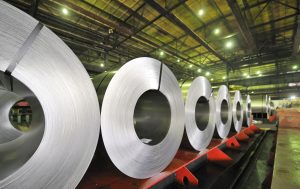The Indonesian government claims that the European Union’s anti-dumping tariffs on certain Indonesian stainless steel products have had a serious impact on its exports, Reuters reported yesterday, shortly after Jakarta took its complaint to the World Trade Organization (WTO).
In a short statement last week, the global trade body announced that Indonesia had requested dispute consultations with the EU “regarding EU anti-dumping and countervailing duties imposed on imports of stainless steel cold-rolled flat products from Indonesia.”
Last year, the European bloc imposed a countervailing duty of 21 percent on imports of stainless steel cold-rolled flat products from Indonesia, which came on top of anti-dumping duties imposed in November 2021, which ranged between 10.2 percent and 20.2 percent.
In an interview with the Reuters news agency, Djatmiko Bris Witjaksono, a senior official at the Indonesian Ministry of Trade, offered some context for Indonesia’s WTO complaint, claiming that the combined impact of the duties had cratered Indonesia’s steel exports to the EU. He said that these had fallen from around $500 million before the implementation of the anti-dumping duties to around $40 million in January-November of last year.
Echoing Indonesia’s complaint to the WTO, he said that the introduction of these anti-dumping duties was “not in line with WTO rules,” and that they had “reduced the competitiveness of Indonesian products.”
The dispute is not the only trade-related – or steel-related – dispute between the two nations. In late 2019, the EU lodged a complaint with the WTO over an Indonesian ban on the export of unprocessed nickel, claiming that the export restrictions on raw materials were unfairly harming its own stainless steel industry.
Indonesia, previously the world’s biggest exporter of nickel ore, announced the ban in a few months, in addition to other restrictions, in order to encourage downstream investment in nickel and steel processing. This ban seemingly prompted the EU to introduce its countervailing duties on steel imports from Indonesia.
In addition to steel, there are other points of tension in the trade relationship. Indonesian officials have been particularly exercised by a recently passaged EU law that could strictly regulate the sale of palm oil, one of the country’s main agro-industrial exports. The regulation, passed in December, will “ensure that a set of key goods placed on the EU market will no longer contribute to deforestation and forest degradation in the EU and elsewhere in the world.” Indonesia was so concerned about the new law that it joined forces with Malaysia to lobby against the proposed regulatory changes.
This came after Indonesia filed a complaint with the WTO in 2019 over the EU’s Renewable Energy Directive II, passed the year prior, which states that biofuel produced from palm oil will not count as a green fuel, and will therefore be phased out under the bloc’s new renewable energy targets.
While the EU claims that the disputes involve the proper implementation of the neutral rules of the global trading system, the Indonesian government views the question of trade in more outwardly historical and political terms. In December, when President Joko Widodo announced that Indonesia would appeal the WTO’s ruling on Indonesia’s nickel export ban, he framed it as a case of Western hypocrisy and his own nation’s struggle for economic self-determination. “If we are scared of being sued, and we step back, we will not be a developed country,” Jokowi said.
Needless to say, these various trade frictions have slowed to a halt in the negotiations over a free trade agreement between the EU and Indonesia. As William Yuen Yee noted in The Diplomat in November, since official negotiations over the free trade pact began in July 2016, 11 rounds of talks have taken place, but, like the WTO’s latest round of trade has since run aground on the shoals of conflicting national and regional interest.
In principle, none of these disputes are irresolvable. However, given the number of points of tension, and the extent to which they reflect more profound historical divergences between the post-colonial world and the advanced economies of the West, it is hard to see Brussels and Jakarta concluding a free trade agreement any time soon.

































